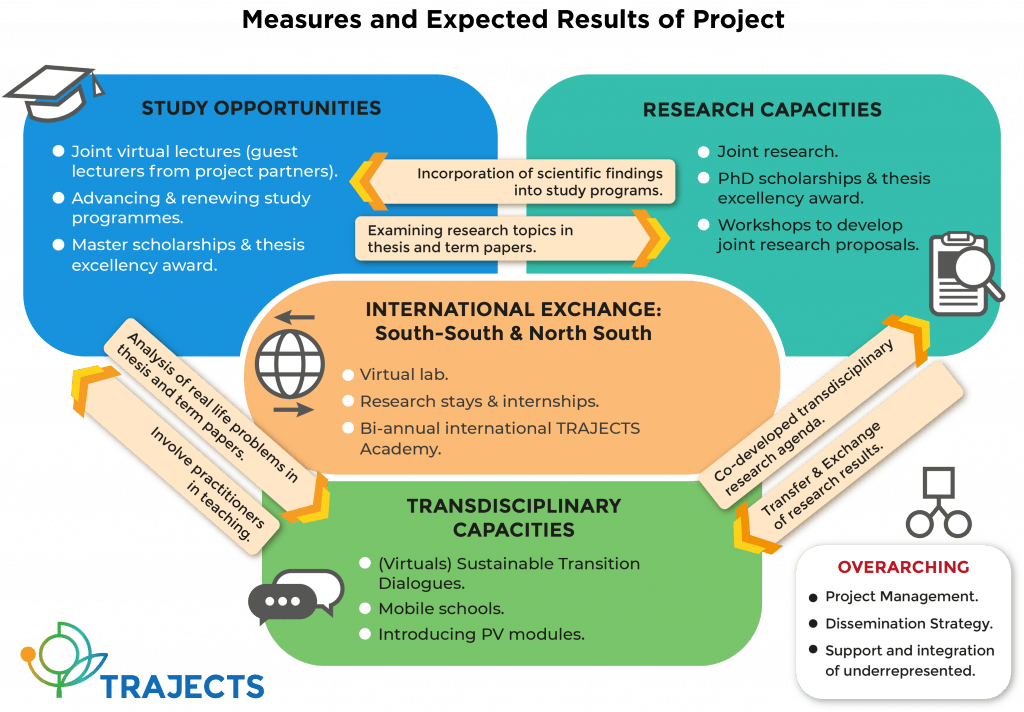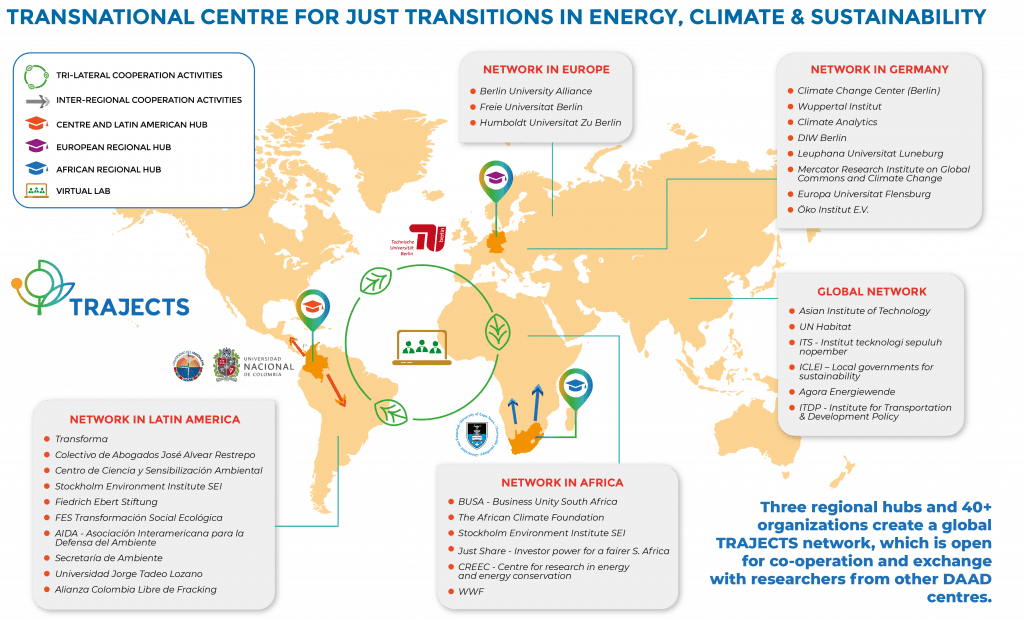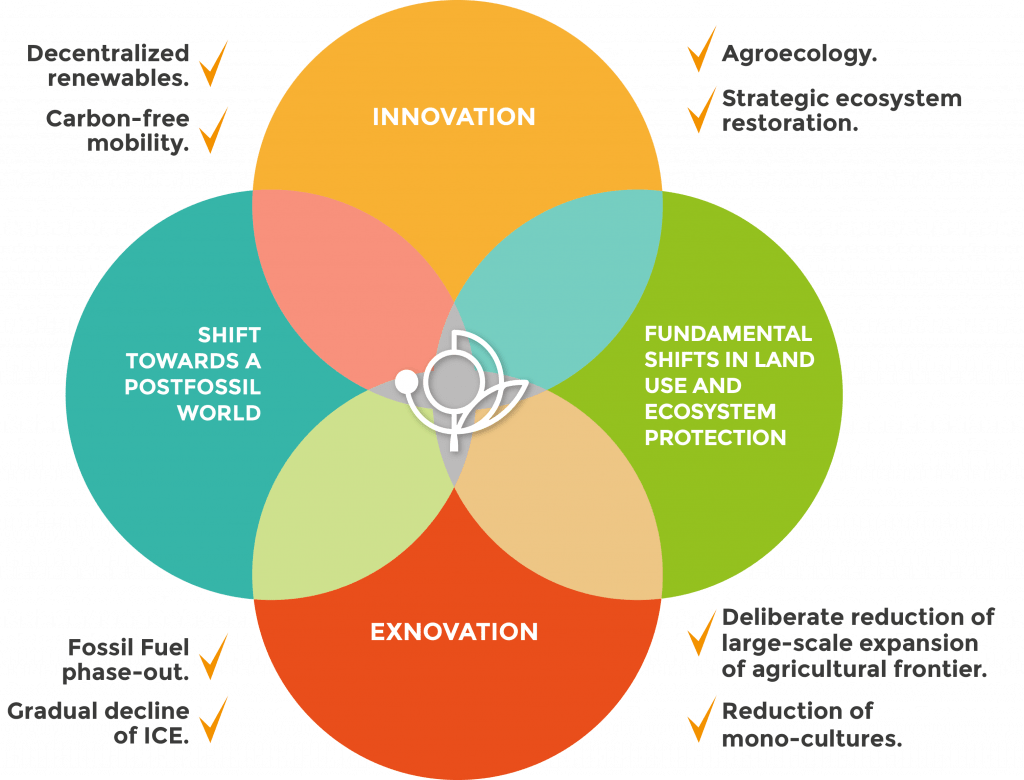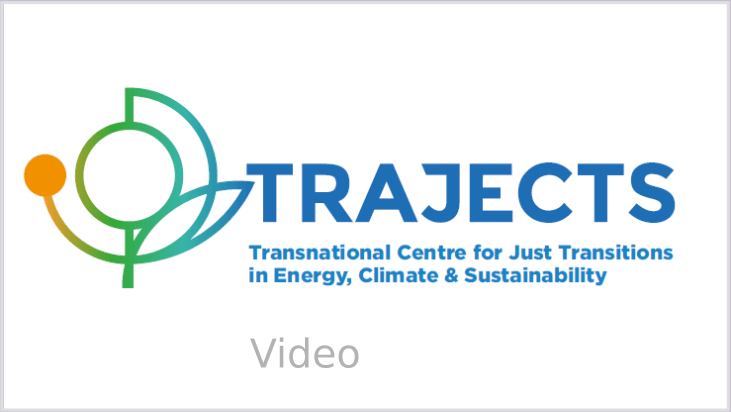Measures and outcomes
TRAJECTS’ main project outcomes are focused on:
✓ Creating new study opportunities
✓ Strengthening and expanding research capacities
✓ Promoting joint transdisciplinary capacities and
✓ Enhancing South-South as well as North-South international exchange and cooperation.

Regional hubs and global network
TRAJECTS constitutes of three main regional hubs based in Colombia, South-Africa, and Germany:
- The Instituto De Estudios Ambientales (IDEA) at Universidad Nacional de Colombia (UNAL): Main hub in charge of coordinating activities in LATAM, as well as academic/logistic exchange and cooperation between hubs.
- The Energy Systems Research Group (ESRG) at University of Cape Town (UCT): African regional junior hub in charge of coordinating activities in Africa.
- The Workgroup for Infrastructure Policy (WIP) at the Technische Universität Berlin (TUB): European hub handling communication with DAAD, as well as academic/logistic coordination between hubs.
Aside from the above mentioned regional hubs, Universidad del Magdalena (UMS), Humboldt Universität Berlin (HUB), the Freie Universität Berlin (FUB) and the Europa Flensburg University (EUF) provide additional support as implementing partners. Along with the aforementioned partners, TRAJECTS is supported by a large global network, with over 40 institutions (and growing) in civil society, academia, think-tanks, public administration, and business. The following figure provides a clearer picture of all the organizations involved in TRAJECTS until now.

TRAJECTS objectives and research foci
Acknowledging the importance of an overarching approach to study and understand Transitions to Sustainability and the key role of dialogue between academia and practical approaches (e.g. policy/decision making and technical/social innovation) to progress this research agenda, the partners behind the TRAJECTS have been making numerous scientific and practical contributions to transitions to sustainability from multiple angles.
TRAJETCS focuses on climate change mitigation in the two focus areas of fossil-fuel phase-out and changes in land management and ecosystem protection, and will extract demand- and policy-oriented research and teaching on the two principal processes of socio-technical transitions (exnovation & innovation) TRAJECTS partners coincide in their shared interest on the different dimensions of two key transitions that must occur to mitigate the most important sources of greenhouse gas (GHG) emissions, as well as of other environmental impacts, to enable a pathway towards a more sustainable future.











